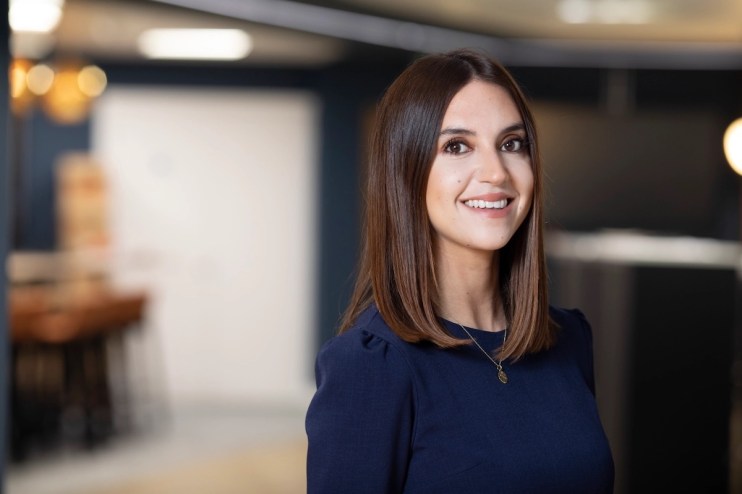The Notebook: Victoria Scholar on why holiday spirit isn’t enough to power airlines’ profits

Where the City’s top thinkers get a few things off their chest. Today, Interactive Investor’s Victoria Scholar takes the pen.
Holiday spirit not enough to power airlines’ profits
Global airline capacity (number of seats offered multiplied by distance flown) is finally on track to restore its pre-pandemic levels, according to data from Circium, reported by Bloomberg.
This comes after a strong period for travel over the busy summer months.
Easyjet, for example, reported a record pretax profit in the third quarter, Tui said it has enjoyed ‘a very good travel summer,’ and Ryanair reported its fourth straight months of record passenger numbers in August.
This is thanks to a boost to international travel over the school holidays, an ongoing rebound in demand for travel post-pandemic, and higher ticket prices helping to offset inflationary pressures.
However, this hasn’t necessarily translated into strong earnings. The International Air Transport Association estimates that profits in the industry will be down 40 per cent this year versus 2019.
And for investors, shares have still had a difficult time, struggling to restore pre-Covid levels. Part of this is because the travel industry is closely correlated with the economic cycle.
Elevated inflation, higher for longer interest rates, and a softening consumer have all sparked nervousness about the strength of ticket demand ahead.
There are worries that the busy summer could quickly switch to a quiet winter during the colder months and in term time.
Plus, corporate travel remains weak, with online video conferencing the new norm post-Covid, particularly now that businesses are looking for ways to cut costs.
The rising oil price is another potential headwind for airlines, potentially adding to their costs with another sharp increase in the price of Brent and WTI this week.
The sector got off to a bruising start to trade yesterday following the escalating conflict between Hamas and Israel. Flight cancellations sent shares in stocks like British Airways’ parent company IAG, Easyjet and Air France KLM sharply into the red.
So, while global airline capacity is finally restored to pre-Covid levels, converting this into profitability and share price gains remains a challenge for the sector.
Moon haute couture
Prada and Axiom Space will be designing the new space suits for Nasa astronauts for their Moon mission in 2025. It will be the first crewed lunar landing since Apollo 17 in 1972, and will be the first to place a woman on the Moon.
Axiom Space’s CEO Michael Suffredini said: “Prada’s technical expertise with raw materials, manufacturing techniques, and innovative design concepts will bring advanced technologies instrumental in ensuring not only the comfort of astronauts on the lunar surface, but also the much-needed human factors considerations absent from legacy spacesuits.”
Banning bonuses
If Labour is elected, the party plans to give power to the water regulator, Ofwat, to ban bonuses to water bosses found to be polluting rivers and lakes with raw sewage.
Speaking at the party’s annual conference in Liverpool, Steve Reed, shadow environment secretary, said ‘special measures’ would be introduced on water bosses including sanctions to make sure they cannot profit while breaking the law.
Last year, the plans would have allowed the government to block six out of nine water bosses’ bonuses because of high water pollution levels.
What’s happening to the shekel?
The Israel-Hamas conflict has pushed the Israeli shekel to the lowest level since 2016.
This prompted the Bank of Israel to intervene by selling up to $30bn of foreign currency in the open market, marking its first intervention in two years and its first foreign exchange sale ever.
Before the violence erupted, the shekel was already struggling as Prime Minister Benjamin Netanyahu was looking to carry out a judicial overhaul that would give the Israeli parliament more power and weaken its judiciary system.
What I’ve been watching this week
Panorama looks into the dark past of Abercrombie & Fitch, a fashion brand described in the documentary as ‘sex meets Ivy League’. The BBC investigation includes conversations with male employees who said they were exploited with some even alleging that they were abused.
Former CEO, Mike Jeffries, was accused of predatory behaviour, allegedly using a middleman to specifically recruit young adult men to attend events hosted by him and his partner Matthew Smith. Abercrombie & Fitch was once an extremely popular brand.
Led by Jeffries, the business developed into a multibillion-dollar fashion powerhouse in the 1990s and 2000s aimed at teenage shoppers. Its marketing was highly sexualised with shirtless models greeting shoppers at their stores’ front doors.
In 2015, Abercrombie put an end to this style of marketing following the departure of Jeffries as it looked to enter a new phase. of its development.
